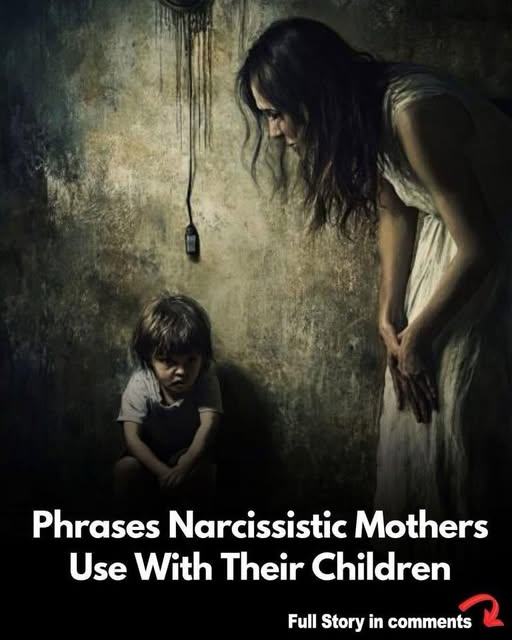Do you know these sayings?

1. “After all I’ve done for you…”
What it really means:
She’s trying to guilt you into compliance or gratitude.
Impact:
This phrase makes you feel indebted, as if your needs or independence are selfish. It discourages healthy boundaries.
2. “You’re too sensitive.”
What it really means:
She’s invalidating your feelings and avoiding accountability.
Impact:
You begin to doubt your own emotions and perception, leading to confusion and low self-worth (a form of gaslighting).
3. “Why can’t you be more like [sibling/other child]?”
What it really means:
She’s using comparison to control and manipulate.
Impact:
You feel like you’re never good enough. This can cause rivalry, low self-esteem, and a desperate need for approval.
4. “Don’t tell anyone what happens in this house.”
What it really means:
She wants to protect her image, even at the cost of your emotional well-being.
Impact:
Creates a culture of secrecy and isolation, discouraging you from seeking help or forming close relationships.
5. “You’ll never survive without me.”
What it really means:
She wants you to stay dependent and fearful of independence.
Impact:
This undermines your confidence and autonomy, making it hard to leave toxic relationships later in life.
6. “I’m only doing this because I love you.”
What it really means:
She’s justifying hurtful or controlling behavior as “love.”
Impact:
You associate love with pain or manipulation, which can distort your understanding of healthy relationships.
7. “That didn’t happen.” or “You’re imagining things.”
What it really means:
She’s denying reality to avoid blame.
Impact:
Classic gaslighting. You begin to mistrust your own memory, judgment, and emotions.
8. “Stop being so dramatic.”
What it really means:
She’s minimizing your emotional expression to maintain control.
Impact:
You may suppress your emotions, feel shame for having needs, or struggle with emotional regulation.
9. “You owe me.”
What it really means:
She sees parenting as a transactional relationship rather than unconditional support.
Impact:
You may feel guilty for pursuing your own happiness or independence.
10. “No one will ever love you like I do.”
What it really means:
She’s planting fear that you’re unlovable outside of her control.
Impact:
Can lead to self-doubt and difficulty trusting others in relationships.